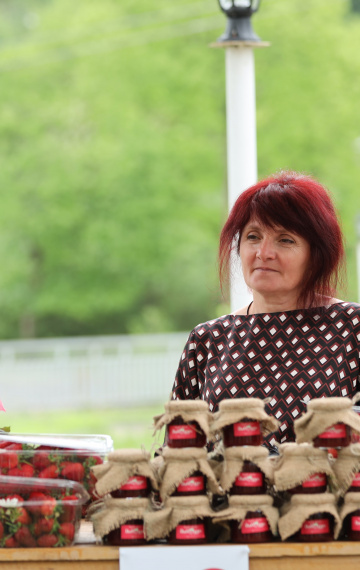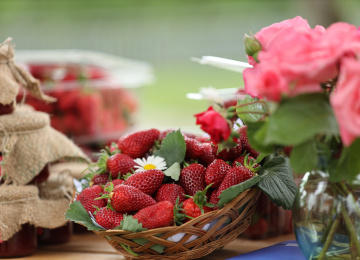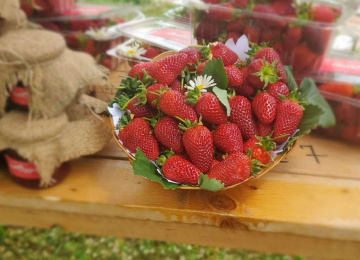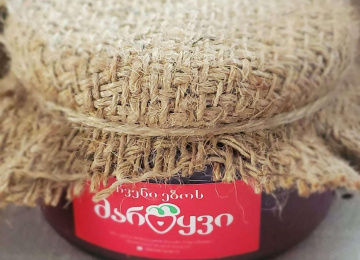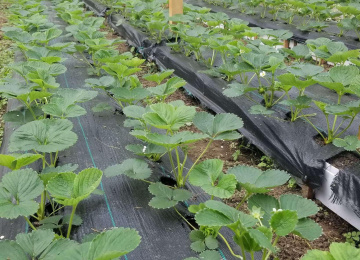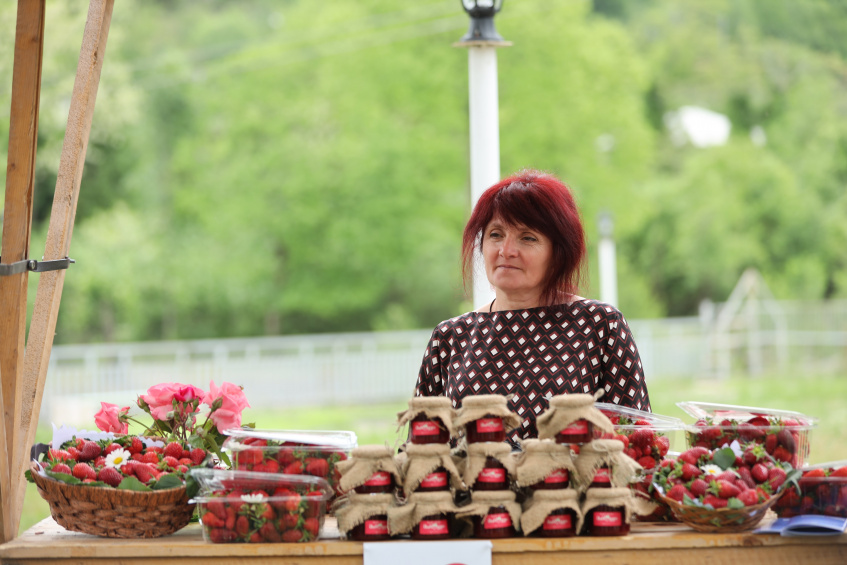
For Mzevinar Mamaladze, it all began in the village of Ianeuli, in western Georgia during the height of the COVID-19 pandemic, when she resolved to find new ways to boost her family’s income. Mzevinar and her husband Ilia Vacheishvili were inspired by their 14-year-old neighbour, Lasha-Giorgi Kuchava, to build a small-scale strawberry greenhouse.
Using 1,000 Georgian Lari saved from his social benefits as an orphan, Kuchava invested in strawberry farming. The knowledge and experience he gained, along with the strawberry seedlings he generously shared, have been invaluable to the Vacheishvili family.
Learning on the go
As a lifelong kindergarten teacher, Mamaladze did not have enough knowledge and experience needed to make the most of her 100-square-meter greenhouse space.
"Strawberries require specific care techniques that I initially knew nothing about, so I made plenty of mistakes along the way," Mamaladze admits. "Managing the greenhouse is no easy task."
Each time Mamaladze purchased care products for her strawberry seedlings, she would seek advice from shop assistants. It didn’t take long before she had mastered the essential techniques. Once she learned how to care for the plants properly and discovered that "Albion" strawberry seedlings were easy to manage and yielded a bountiful harvest, her production increased significantly. She began selling strawberries directly from her home, as well as supplying two local markets in Chokhatauri, western Georgia – where they sold out almost instantly.
That’s when she realized it was time to upgrade from a small-scale operation to a sustainable, properly equipped greenhouse. However, as a new entrepreneur, she was unable to fund the construction of the new greenhouse on her own.
From five to one thousand
Through the "Catalysing Economic and Social Life" (CESL) project, funded by the European Union as a component of the EU4Business initiative through EU4ITD and the German Government, and implemented by the German International Cooperation GIZ in partnership with the local NGO "Women-for-Women," Mamaladze discovered an opportunity to significantly expand her strawberry farming business. With the funding from the project, she established a new greenhouse, complete with a heating and cooling system.
The CESL project aims to improve the income sources for residents in four regions of Georgia (Guria, Imereti, Kakheti, Racha-Lechkhumi and Kvemo Svaneti), to help reduce the migration of the population from these areas to the capital Tbilisi, and increase the motivation for people to move to the regions."
For Mamaladze, the new greenhouse means she can produce a consistent year-round yield, as well as grow, harvest, and sell seedlings. She experiences significant boost during the winter months, as off-season demand causes strawberry prices to soar.
What began as a greenhouse with just five seedlings has now grown to house 1,000 plants, each yielding up to 800 grams of strawberries.
“My production has doubled,” Mamaladze says. “I’m now producing up to 800 kilos (0.8 tons) of strawberries and there is constant demand for more.”
Entrepreneurial opportunities
Strawberry farming opened up additional entrepreneurial opportunities for Mamaladze and her family. They began producing a variety of strawberry-based goods, including homemade confectioneries, jams, and compote fruit drinks crafted from cherished family recipes, which they have showcased at various fairs. Additionally, they now distil strawberry vodka and liqueur using second-class strawberries.
And strawberries are just one part of Mamaladze's vision: For years, she has been making dried fruits for her family at home, with a small setup. Looking ahead, she hopes to establish a small dried fruit factory to expand her production, but to do so, she needs to build a facility and purchase the necessary equipment. Furthermore, she has been experimenting with growing various greens and vegetables in the greenhouse – with promising results.
"Greenhouse farming requires a lot of effort, especially when you work full-time at the kindergarten," she says.
"But my family has made it much easier."

